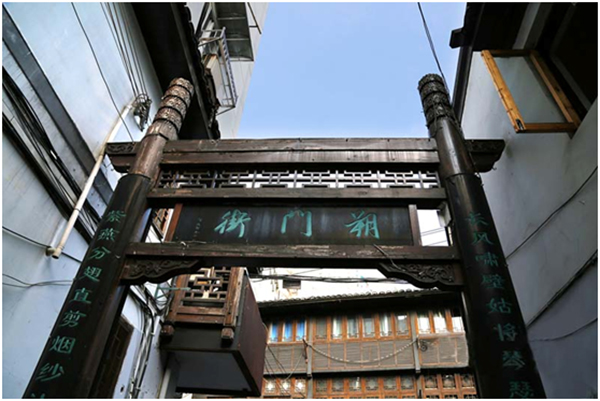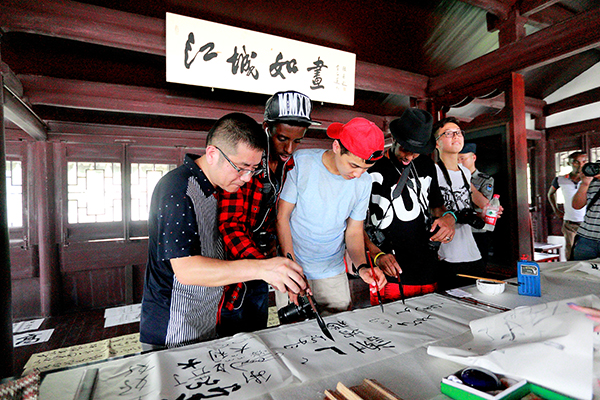Shuomen Street
Source:Zhejiang Gongshang University
|
Author:Bao Hanli
|
Publish time:2018-04-17
|
7183 Views:
|
Share:
The abundance of nightlife makes Lucheng one of the cultural cities of Southern Zhejiang. A city is solitude without a passionate night. All the passion always gets unleashed under the flickering neon lights and scents drifting from bars and road diners.

The abundance of nightlife makes Lucheng one of the cultural cities of Southern Zhejiang. A city is solitude without a passionate night. All the passion always gets unleashed under the flickering neon lights and scents drifting from bars and road diners. Strolling around Jiangbin Road at night, not only could you learn the history of Shuomen Street and Zhu Ziqing’s Former Residence, but also enjoy the dazzlingly beautiful scenery of Jiangxin Islet with a light show coming from the opposite side of river. Or you could visit the breezy Oujiang River by taking a ferry in the evening. A lot of leisure bars and cafes are concentrated around Jiangbin Road in the section from the Guogong Mountain to Jiefang Street. Those trendy fashionista and a great deal of young white-collars come together here every night. 
The ancient Shuomen Street, which has been recording history for millennia, condensing thousands of years of vicissitudes and overflowing with age-old archaic rhyme, is a rarely existed traditional architectural community of Wenzhou. Not many of them got preserved well. These quiet ancient lanes are like aging wines integrated with millennium vicissitudes and human culture, touching from time to time a visitor's mood of nostalgia and novelty-seeking. Those elegant street views attract groups of men of literature and cultural merchants to stop here, making it radiate the uniquely enchanting rhyme of Jiangnan's ancient lanes. Setting foot on the ancient Shuomen Street featured with nearby green waters, bricked walls, lacquered-black doors, flower-carved lintels, people are overwhelmed by a sense of tranquility, which is totally different from the city's noise. Besides these bars and cafes on the streets, the rural culture from within could also be disclosed with its subtleties. Back in the Ming and Qing Dynasties, Shuomen Street had been treated as a center of commercial importance, with flourishing shops placed closely side by side all along both sides of street. Most of them were dealing in products, such as southern goods, pastries, aquatic products, candles and so on. When the ferry from the north bank of Oujiang River docked, passengers always scrambled out of the ferry and rushed into the street. At the same time the shops were on tiptoes with expectation. These shops on Shuomen street could supply everything that people wanted to buy, no matter what they were (firewood, rice, oil, salt, cloth, or needle, thread, candles).








